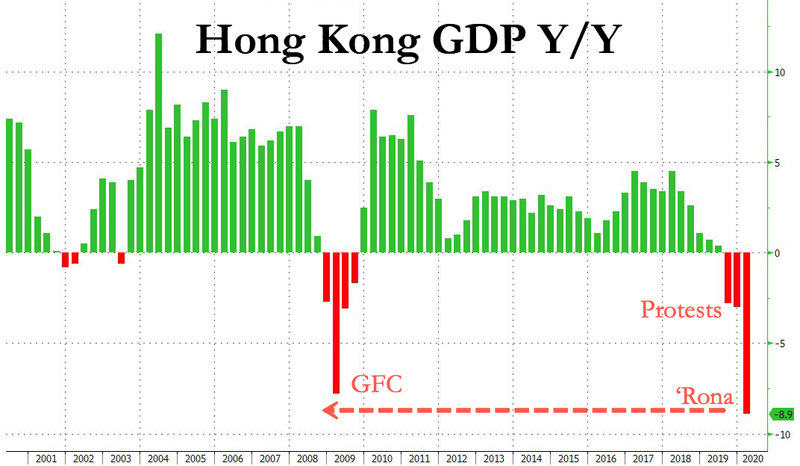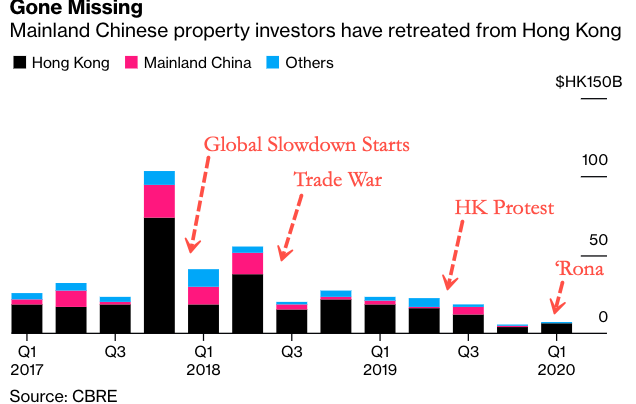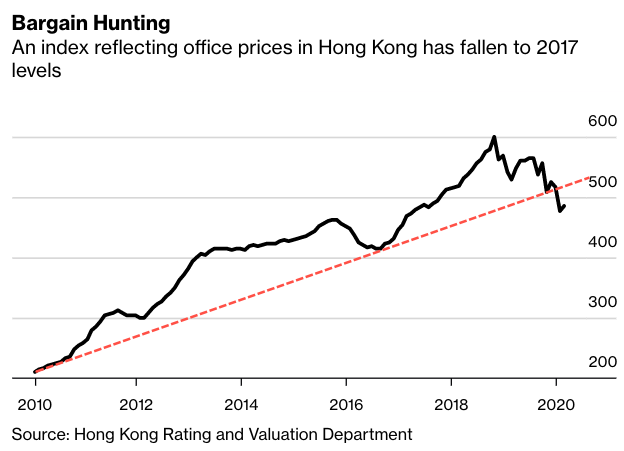Chinese Buyers Flee Hong Kong Real Estate In Major Hit To World’s Priciest Property Market
Mainland Chinese are no fools. They’re shunning commercial real estate deals in Hong Kong as a deep recession unfolds.
According to Bloomberg, citing a new CBRE Group Inc. report, there were no mainland Chinese buyers for property transactions greater than HK$77 million ($10 million) in 1Q20. This was a sharp difference from several years ago when bidding wars drove property prices higher.
“A lot of mainland buyers are taking a step back because of the economic outlook and the conflicts that made them feel unwelcome,” said Reeves Yan, head of capital markets at CBRE.
Preliminary data on Monday showed Hong Kong’s economy crashed in 1Q20, with the worst economic contraction ever, printing -8.9% YoY. The data suggest a further plunge in economic activity will be seen in 2Q as more of the lockdown was captured in the quarter.
Yan said capital controls imposed by Beijing on money flowing in and out of China had also damaged the commercial real estate market.
As shown in the chart below, there was a confluence of events that resulted in the decline of buyers:
The decline of mainland participation also resulted in a price slump, data from the Rating and Valuation Department showed. A decades-long trendline was recently broken. A peak in prices was seen about a year after the global slowdown started, and about half a year after the trade war gained momentum. In February, prices fell 8.5% from a year earlier.
Hong Kong Financial Secretary Paul Chan Mo-Po warned on Monday that a “deep recession” has made the “economic situation very challenging.”
Iris Pang, Greater China economist at ING, said there are some signs the virus spread across Asia has slowed but warned: “social distancing will continue to hurt catering and shopping.” She said the risk of more protests is increasing for “the summer holidays.”
A recovery of Hong Kong’s collapsed tourism industry could take years. Chinese tourists began to shun the city when protests erupted last summer. Then when the pandemic unfolded earlier this year, mainlanders completely abandoned the area. The decline of mainlanders means a reduction in foot traffic at the world’s most expensive shopping mall, located at Hong Kong’s Times Square in the center of Causeway Bay, reported Bloomberg. This is the area where mainlanders would come to pick up expensive watches and discounted cosmetics.
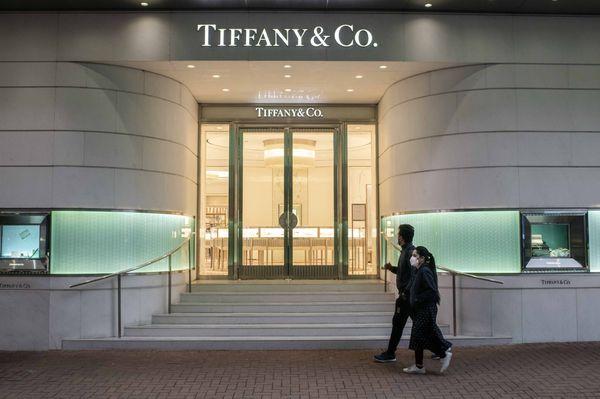
Mainlander visitors plummeted 53% in December over the prior year, mainly because of the protest. However, the virus, which resulted in strict stay-at-home orders, is likely to show visitor data near zero for early 2020.
“Many retailers are saying it’s a disaster,” said Nicholas Bradstreet, managing director of at Savills Plc. “In the last 10 days, their sales have been down 70% to 80% week-on-week. There’s very little traffic into the shops” at retail districts like Central, Causeway Bay and Tsim Sha Tsui, he added.
Times Square fronts Russell Street, where commercial real estate prices are equivalent to New York City’s and is some of the most expensive in the world. Prada, operating a store in the retail district, recently got out of its HK$9 million ($1.2 million) per month lease as the area now resembles a ghost town.
“Causeway Bay is very quiet now. It used to have a lot of traffic,” said Wong, a salesperson at a retail store in the area. “With the scarcity of face masks, people would rather not go out at all.”
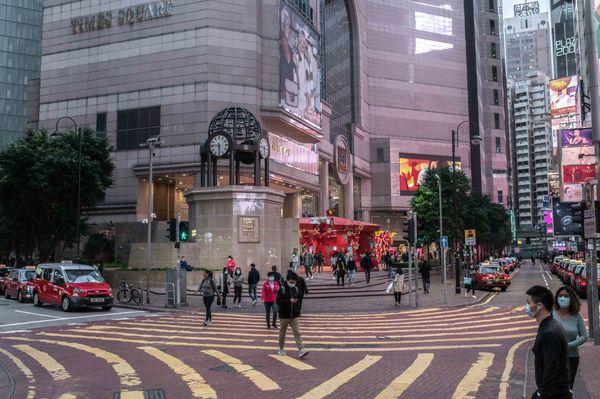
h/t Bloomberg
The retail downturn in Hong Kong is due to the lack of tourists from China, has stressed out landlords, and dented commercial real estate prices as we noted above.
Mall owners, including Times Square’s Wharf Real Estate Investment Co., is facing rent pressures and rising vacancies. The shares of the company have corrected about 15% since late January.
The deepening economic contraction will undoubtedly be shown in 2Q20. This will continue to pressure real estate prices as it now appears the prospects of a V-shaped recovery are fading.
Tyler Durden
Wed, 05/06/2020 – 01:00
via ZeroHedge News https://ift.tt/3forgUP Tyler Durden
